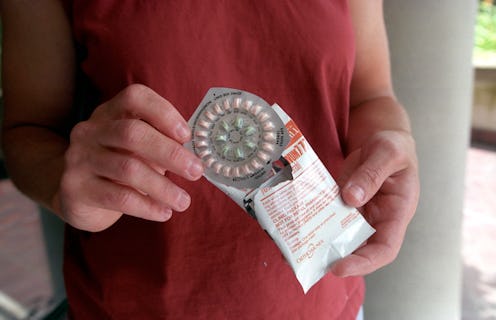News
Trump's Presidency & Its Effects On Contraceptives
Well, Donald Trump won the election. For those who currently take oral contraceptives, this is a probable cause of concern, considering Trump's restrictive views on women's health. Since both the Senate and the House of Representatives will remain under Republican control when he inaugurated in January, these worries aren't unfounded. There are several ways the new president-elect can potentially make birth control more difficult to access.
The first is repealing the Affordable Care Act. Trump has repeatedly promised to repeal the ACA when he takes office. Under this law, birth control is currently provided for free to women with health insurance. If Trump succeeds in abolishing the ACA, millions of women will no longer have this coverage and will likely be faced with either co-pays or full-priced oral contraceptives, a major barrier for women with low incomes. With a Republican-controlled Congress on his side, Trump would have very little difficulty in getting his way, especially since Obamacare has been highly unpopular in Republican circles since before it was even passed.
The president-elect has also pledged to defund Planned Parenthood. He later backtracked on the position, telling CNN, "I would look at the good aspects of it, and I would also look because I’m sure they do some things properly and good for women. I would look at that, and I would look at other aspects also, but we have to take care of women. The abortion aspect of Planned Parenthood should absolutely not be funded."
His hedging, however, comes as no consolation, considering the fact that federal funding of abortions is already illegal, under Title X. His running mate, Mike Pence, has reiterated the intention to defund the organization as recently as Oct. 12.
According to Planned Parenthood's website, 80 percent of their patients receive "services to prevent unintended pregnancies." Their 2013-2014 annual report lists contraception composing of 34 percent of that year's total services, with 3,577,348 total birth control services provided, of which 1,440,348 were emergency kits. Planned Parenthood provides oral contraceptives at no cost for low-income women, or at a lower price than many pharmacies for other patients. If Trump were to eliminate the $500 million Planned Parenthood receives from the government, he would make it significantly harder for them to continue helping the millions of women who choose to use birth control.
This paints a grim picture of what's to come. In the meantime, you might consider getting an IUD before January.
